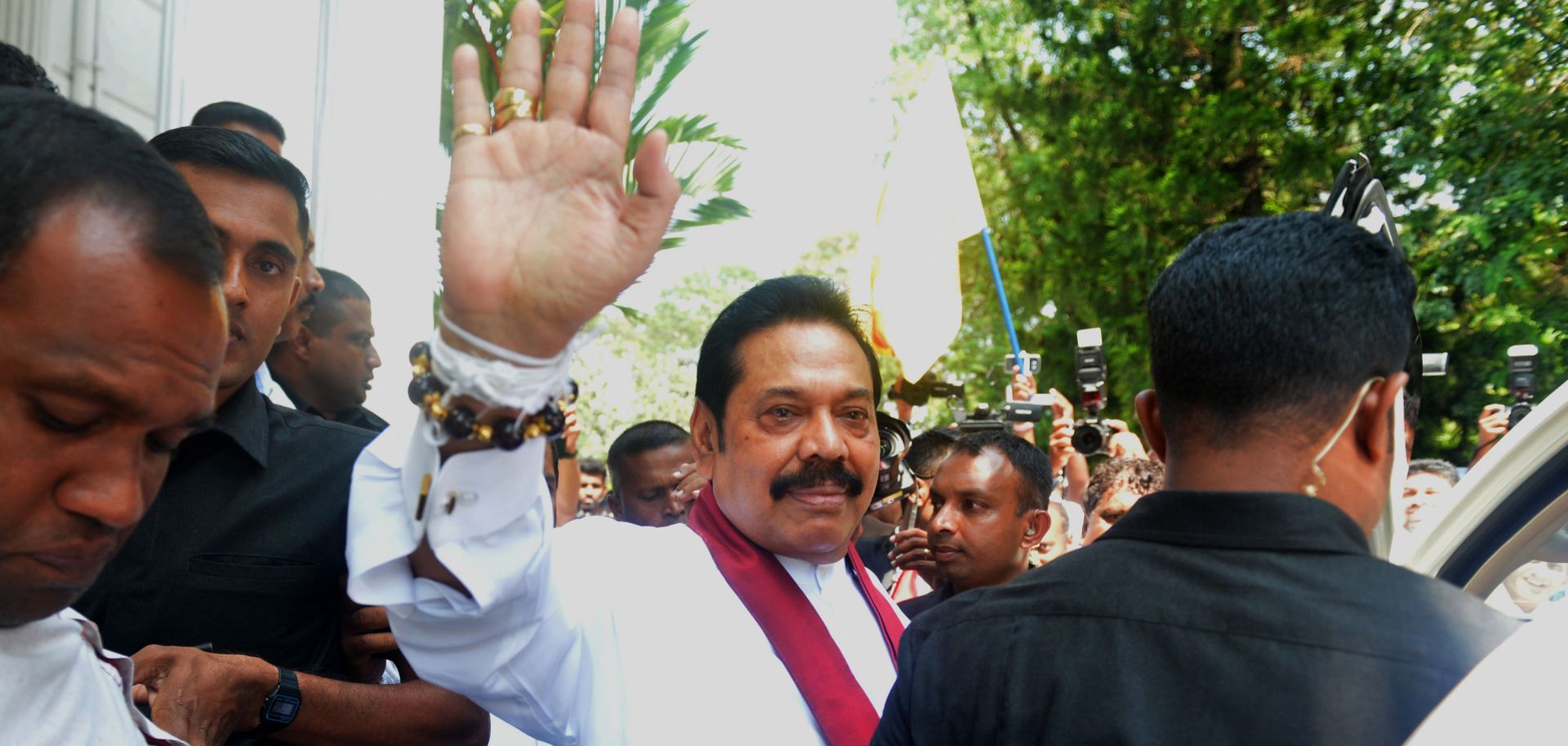ASSESSMENTS
Sri Lanka: A Prime Minister's Dismissal Throws Colombo Into Chaos
Oct 30, 2018 | 06:30 GMT

Sri Lanka's newly appointed prime minister, Mahinda Rajapaksa, waves to supporters after a ceremony to assume duties in Colombo on Oct. 29. Sri Lanka's political upheaval is likely to have domestic and international ramifications.
(ISHARA S. KODIKARA/AFP/Getty Images)
Highlights
- The dismissal of Ranil Wickremesinghe will usher in a volatile period in Sri Lankan politics in the upcoming months.
- New Prime Minister Mahinda Rajapaksa's ascension to power will worry India given his perceived tilt toward China.
- India has traditionally viewed Sri Lanka as its backyard, but it is likely to watch its influence continue to wane in the area as China grows in strength.
Subscribe Now
SubscribeAlready have an account?
